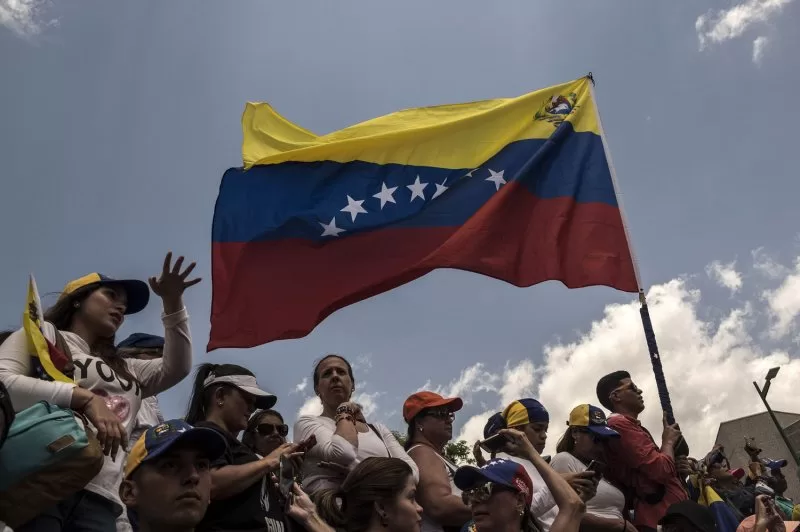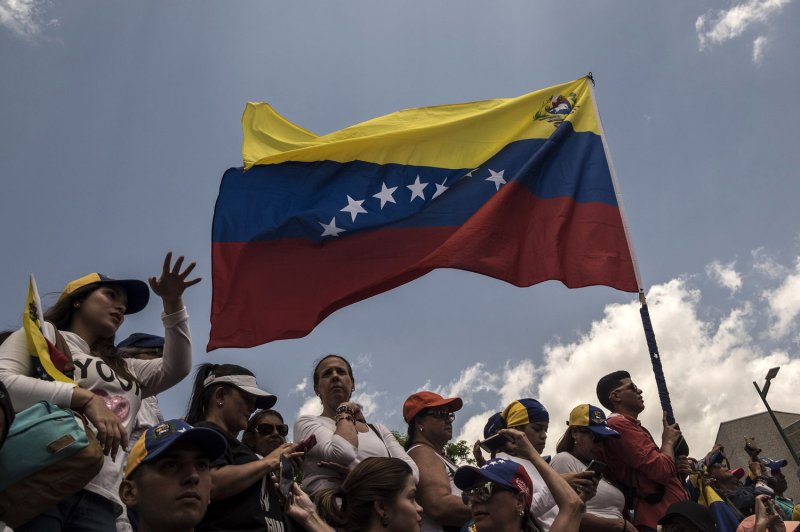The office of Venezuelan President Nicholás Maduro on Thursday ordered the expulsion of the U.N. High Commissioner for Human Rights from the county. The move limits international oversight on a government already accused of numerous human rights violations. File Photo by Marcelo Perez/UPI |
License PhotoFeb. 15 (UPI) — The Venezuelan government of President Nicolás Maduro on Thursday ordered the United Nations human rights office to leave the country within 72 hours, a move that follows a “drastic hardening” against Maduro’s political opponents.
Foreign Affairs Minister Yván Gil in an announcement accused the Venezuelan office of the United Nations High Commissioner for Human Rights of “colonialist behavior” and called it a “private law firm of coup plotters and terrorist groups that permanently conspire against the country.”
The decision builds on an already alarming trend of human rights violations in the country, including the arrest of Venezuelan activist Rocío San Miguel just days prior.
Venezuelan Attorney General Tarek William Saab said San Miguel was held in El Helicoide –a prison notorious for human rights abuses — alleging her participation in a plot to assassinate Maduro.
San Miguel leads the Control Ciudadano, a nonprofit that has investigated extrajudicial killings by the Venezuelan government and the military’s alleged involvement in illegal mining.
Her arrest has drawn criticism from the international community. White House spokesman John Kirby on Tuesday said the U.S. government is “deeply concerned” by her detention.
Phil Gunson, a Caracas-based Venezuela expert for International Crisis Group, told the New York Times that these recent actions by the Maduro regime mark a “drastic hardening” against critics and political opponents.
The U.S. State Department said last month it plans to reimpose sanctions due to Maduro’s failure to uphold the Barbados Agreement he signed in October to hold democratic elections.
Days after signing the agreement, the Maduro government declared opposition candidate María Corina Machado ineligible to run and had arrested serveral members of her campaign.
The United States in response reimposed sanctions on Venezuelan government-owned gold mining company Minerven, prohibiting U.S. persons from doing business with the company. The U.S. government also threatened not to renew a license providing relief to Venezuela’s oil and gas sector in April.
The closure of the U.N. human rights office now could make it “much harder” for the United States to renew the oil-and-gas licenses in April, Geoff Ramsey, a senior fellow at the Atlantic Council focused on Venezuela, told the Washington Post.
“The opening of the High Commissioner’s Office in Caracas was a major concession from the Maduro regime,” Ramsey said. “The fact that they’re willing to shut them down is the latest indication that Maduro is willing to call the Biden administration’s bluff.”
Ravina Shamdasani, a spokeswoman for the U.N. human rights office, told the New York Times the agency was evaluating its next steps.
“Our guiding principle,” she said, “remains the promotion and protection of the human rights of the people of Venezuela.”

